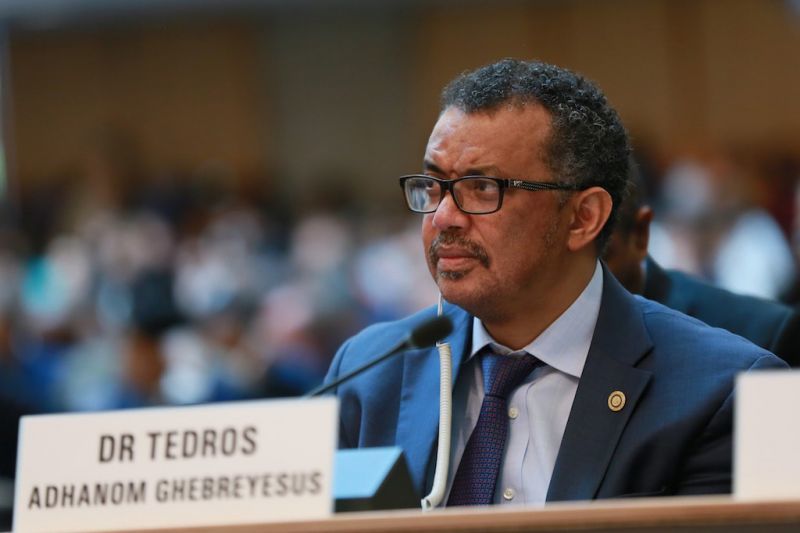The World Health Organization (WHO) has declared the monkeypox outbreak in over 70 countries an “emergency of international concern”.
WHO Director-General Tedros Adhanom Ghebreyesus made the decision to issue the declaration despite a lack of consensus among experts serving on the UN health agency’s emergency committee. It was the first time the chief of the UN health agency has taken such an action.
A public health emergency of international concern – or PHEIC – is defined by the WHO’s international health regulations as “an extraordinary event which is determined to constitute a public health risk to other states through the international spread of disease and to potentially require a coordinated international response
The Director General added that there are now more than 16 thousand reported cases from 75 countries and territories, and five deaths and the number of confirmed infections rose 77% from late June through early July, according to WHO data.
 WHO Director-General Tedros Adhanom
Ghebreyesus made the decision to issue the declaration despite a lack of
consensus among experts serving on the UN health agency’s emergency
committee. It was the first time the chief of the UN health agency has
taken such an action.
WHO Director-General Tedros Adhanom
Ghebreyesus made the decision to issue the declaration despite a lack of
consensus among experts serving on the UN health agency’s emergency
committee. It was the first time the chief of the UN health agency has
taken such an action. 5 deaths recorded in Africa
Five deaths from the virus have been reported in Africa this year, however, no deaths have been reported outside Africa so far.
Although the declaration does not impose requirements on national governments, it serves as an urgent call for action. The WHO can only issue guidance and recommendations to its member states, not mandates. Member states are required to report events that pose a threat to global health.
Most people are recovering from monkeypox in two to four weeks, according to the U.S. Centers for Disease Control and Prevention. The virus causes a rash that can spread over the body which looks like pimples or blisters and can be very painful.
In early July 7, 2022, Acting Chief Medical Officer in the VI, Dr. Ronald E. Georges said that while there is no confirmed or suspected cases of Monkeypox in the VI, it is critical that the territory raises its awareness and enters into a state of heightened vigilance and readiness so that it can respond quickly to reduce human-to-human transmission.















